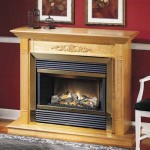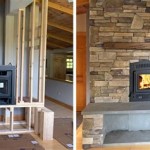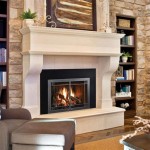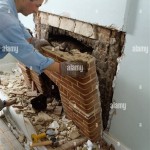Are Electric Fireplaces Energy Efficient?
Electric fireplaces have become a popular alternative to traditional wood-burning fireplaces, offering warmth, ambiance, and convenience without the hassle of wood chopping and ash cleanup. But a common question arises: are electric fireplaces energy efficient? The answer is not as straightforward as a simple yes or no. While they do not require burning fuel like wood or gas, their energy consumption varies depending on several factors, including the type of electric fireplace, its features, and how it is used.
Electric fireplaces use electricity to generate heat, mimicking the look and feel of a traditional fireplace. The electric elements heat up, often using a fan to circulate warm air. However, their energy efficiency depends on several factors, making it crucial to understand how they operate and compare their consumption to other heating sources.
Types of Electric Fireplaces and Their Efficiency
Electric fireplaces come in a variety of styles and designs, including freestanding units, wall-mounted models, and inserts that can be integrated into existing fireplaces. The type of electric fireplace can significantly impact its energy efficiency.
Freestanding electric fireplaces often feature built-in heating elements that directly heat the surrounding air. They are generally more energy-efficient than wall-mounted units, but the efficiency can vary depending on their size, power output, and features.
Wall-mounted electric fireplaces typically have a smaller heating capacity and may not be as effective in heating a larger room. They are commonly used as decorative features and may not be the most energy-efficient option for primary heating.
Electric fireplace inserts can be installed into existing fireplaces, replacing the traditional wood-burning setup. They offer a similar ambiance to a wood-burning fireplace but with increased energy efficiency. The efficiency of an electric fireplace insert depends on the specific model and its integration within the fireplace structure.
Factors Affecting Electric Fireplace Efficiency
Beyond the type of electric fireplace, several factors play a significant role in determining its energy efficiency. These include:
Heating Element Type: Different electric fireplaces use varying heating element types. Some use traditional resistance heating elements, while others employ infrared technology. Resistance heating elements convert electricity directly into heat, while infrared elements use electromagnetic radiation to heat objects directly. Infrared heaters are generally considered more energy-efficient than resistance heaters, as they target specific areas rather than heating the entire room.
Power Output: The heating capacity of an electric fireplace is measured in BTUs (British thermal units). A higher BTU rating indicates a greater heating capacity, but also higher electricity consumption. It is essential to choose a fireplace with a suitable BTU output for the size of the room you wish to heat.
Features: Additional features like built-in fans, thermostats, timers, and remote controls can impact energy consumption. A fireplace with a built-in thermostat can automatically adjust the heating output, potentially reducing energy waste.
Installation and Placement: The location and installation of an electric fireplace can influence its efficiency. Placing it in a well-insulated room with minimal drafts can improve its performance and reduce energy loss.
Comparing Electric Fireplaces to Other Heating Sources
When considering the energy efficiency of an electric fireplace, it is essential to compare it to other common heating sources. Here are some comparisons:
Traditional Fireplaces: Wood-burning fireplaces are notoriously inefficient, with only a small percentage of the heat generated actually reaching the room. They also require ongoing maintenance and can produce significant amounts of smoke and ash.
Gas Fireplaces: Gas fireplaces can be more efficient than wood-burning fireplaces, but they still rely on gas for fuel. They also require a vent for combustion, which can impact the efficiency of the overall heating system.
Heat Pumps: Heat pumps are highly energy-efficient heating systems that transfer heat from one location to another. They are generally more efficient than electric fireplaces, especially in mild climates. However, their installation costs can be higher.
Electric Space Heaters: Electric space heaters are a more portable and affordable option but can be less energy-efficient than electric fireplaces. They often use traditional resistance heating elements, which can consume significant amounts of electricity.
The energy efficiency of an electric fireplace will vary significantly depending on the factors discussed above. It is essential to carefully research and choose a model that meets your specific needs and budget.

Are Electric Fireplaces Energy Efficient Direct Learning Center

Are Electric Fireplaces Energy Efficient We Love Fire

Are Electric Fireplaces Energy Efficient Direct Learning Center

Are Electric Fireplaces Energy Efficient We Love Fire

Are Electric Fireplaces Energy Efficient

How Energy Efficient Is An Electric Fireplace

Are Electric Fireplaces Energy Efficient We Love Fire

Are Electric Fireplaces Energy Efficient Direct Learning Center

Energy Efficiency Benefits Of Purchasing An Electric Fireplace Uintah Fireplaces

Are Electric Fireplaces Energy Efficient We Love Fire
Related Posts








